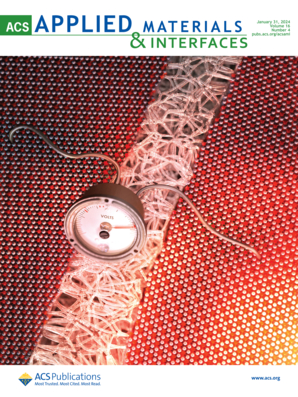软对比序列推荐
IF 8.3
2区 材料科学
Q1 MATERIALS SCIENCE, MULTIDISCIPLINARY
引用次数: 0
摘要
对比学习(Contrastive Learning)是最近出现的一种提高顺序推荐性能的有效策略。然而,传统模型通常通过直接优化人为设计的正样本和负样本来构建对比损失,从而导致模型对启发式规则过于敏感。为了解决这一局限性,我们在本文中提出了一种用于顺序推荐的新型软对比框架。我们的主要想法是将点式对比扩展到区域级对比,我们的目标是在最初选定的正/负样本附近识别出表现出类似对比特性的实例。这种扩展提高了模型对人类启发式方法的鲁棒性。为了实现这一目标,我们引入了一种对抗性对比损失,使我们能够更有效地探索样本区域。具体来说,我们首先将用户行为序列视为一个整体。我们通过在序列表示中引入连续扰动向量来构建对抗样本。这种扰动向量增加了序列的可变性,从而能更灵活地探索样本区域。此外,我们还扩展了上述策略,直接对序列中的项目施加扰动。这就考虑到了项目的顺序性。为了捕捉这些顺序关系,我们利用递归神经网络来关联扰动,从而引入归纳偏差,更有效地探索对抗样本。为了证明我们模型的有效性,我们在五个真实世界的数据集上进行了广泛的实验。本文章由计算机程序翻译,如有差异,请以英文原文为准。
Soft Contrastive Sequential Recommendation
Contrastive learning has recently emerged as an effective strategy for improving the performance of sequential recommendation. However, traditional models commonly construct the contrastive loss by directly optimizing human-designed positive and negative samples, resulting in a model that is overly sensitive to heuristic rules. To address this limitation, we propose a novel soft contrastive framework for sequential recommendation in this paper. Our main idea is to extend the point-wise contrast to a region-level comparison, where we aim to identify instances near the initially selected positive/negative samples that exhibit similar contrastive properties. This extension improves the model’s robustness to human heuristics. To achieve this objective, we introduce an adversarial contrastive loss that allows us to explore the sample regions more effectively. Specifically, we begin by considering the user behavior sequence as a holistic entity. We construct adversarial samples by introducing a continuous perturbation vector to the sequence representation. This perturbation vector adds variability to the sequence, enabling more flexible exploration of the sample regions. Moreover, we extend the aforementioned strategy by applying perturbations directly to the items within the sequence. This accounts for the sequential nature of the items. To capture these sequential relationships, we utilize a recurrent neural network to associate the perturbations, which introduces an inductive bias for more efficient exploration of adversarial samples. To demonstrate the effectiveness of our model, we conduct extensive experiments on five real-world datasets.
求助全文
通过发布文献求助,成功后即可免费获取论文全文。
去求助
来源期刊

ACS Applied Materials & Interfaces
工程技术-材料科学:综合
CiteScore
16.00
自引率
6.30%
发文量
4978
审稿时长
1.8 months
期刊介绍:
ACS Applied Materials & Interfaces is a leading interdisciplinary journal that brings together chemists, engineers, physicists, and biologists to explore the development and utilization of newly-discovered materials and interfacial processes for specific applications. Our journal has experienced remarkable growth since its establishment in 2009, both in terms of the number of articles published and the impact of the research showcased. We are proud to foster a truly global community, with the majority of published articles originating from outside the United States, reflecting the rapid growth of applied research worldwide.
 求助内容:
求助内容: 应助结果提醒方式:
应助结果提醒方式:


